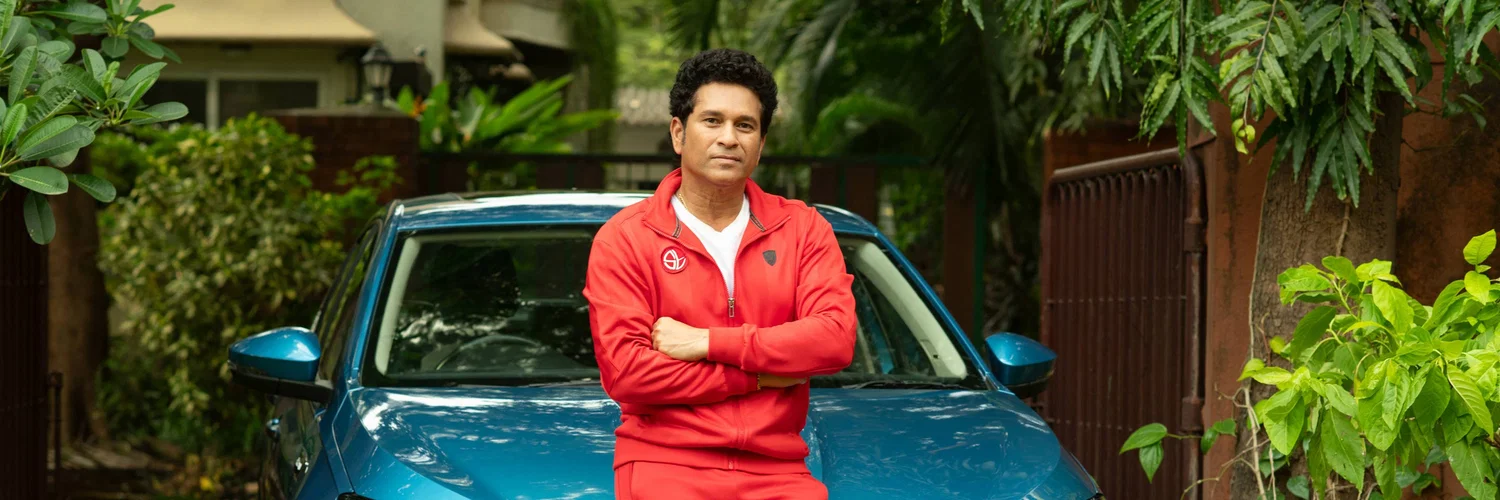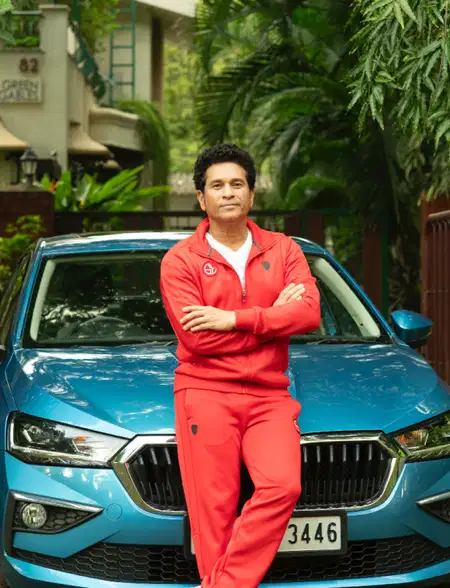If you look up places to visit in India, chances are you will find Leh-Ladakh right at the top of every list, and not without good reason. The majestic brown mountains and the mesmerizing blue skies of Ladakh have fascinated generations of travellers. It’s a permanent feature in most travel bucket-lists and a destination that mountain lovers worldwide would love to make their second home.
A road trip is undoubtedly the best way to explore Ladakh and its beautiful valleys, lakes, monasteries, and rivers. If you are planning a Ladakh road trip, find out the available routes, key attractions, and everything else you need to know.
Overview of Leh-Ladakh Region
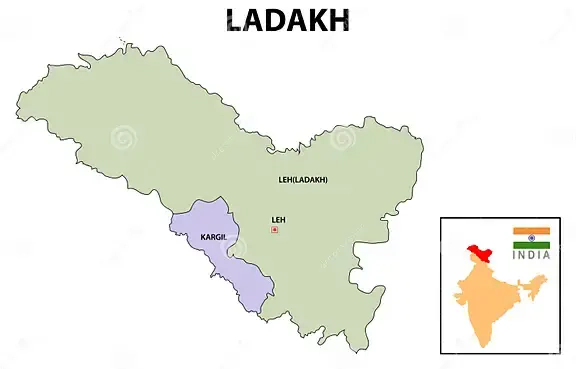
Leh-Ladakh is a mountainous region in the North of India. The name itself stands for the ‘land of high mountain passes.’ Leh is the largest city in the region and is located 3500 metres above sea level, tucked away in the Ladakh, Karakoram, Zanskar, and Great Himalayan mountain ranges.
The region is renowned for its secluded alpine scenery, which is dotted with stupas and monasteries. The name “Little Tibet” is frequently used in Ladakh because of its proximity to Tibet and close ties to Tibetan culture. Besides all these, Ladakh also has sparkling rivers, wildlife sanctuaries, peaceful scenic lakes, and lots of wonderful activities.
Ladakh is the dream destination for every road trip and adventure lover, as it has more than dozens of passes open to visitors. Khardung La Pass is the second highest motorable pass in Ladakh and among the highest mountain passes in the world. Perched at an altitude of 5,602 m above sea level, it is a gateway to the Nubra and Shyok Valleys.
Best Time to Visit Leh-Ladakh
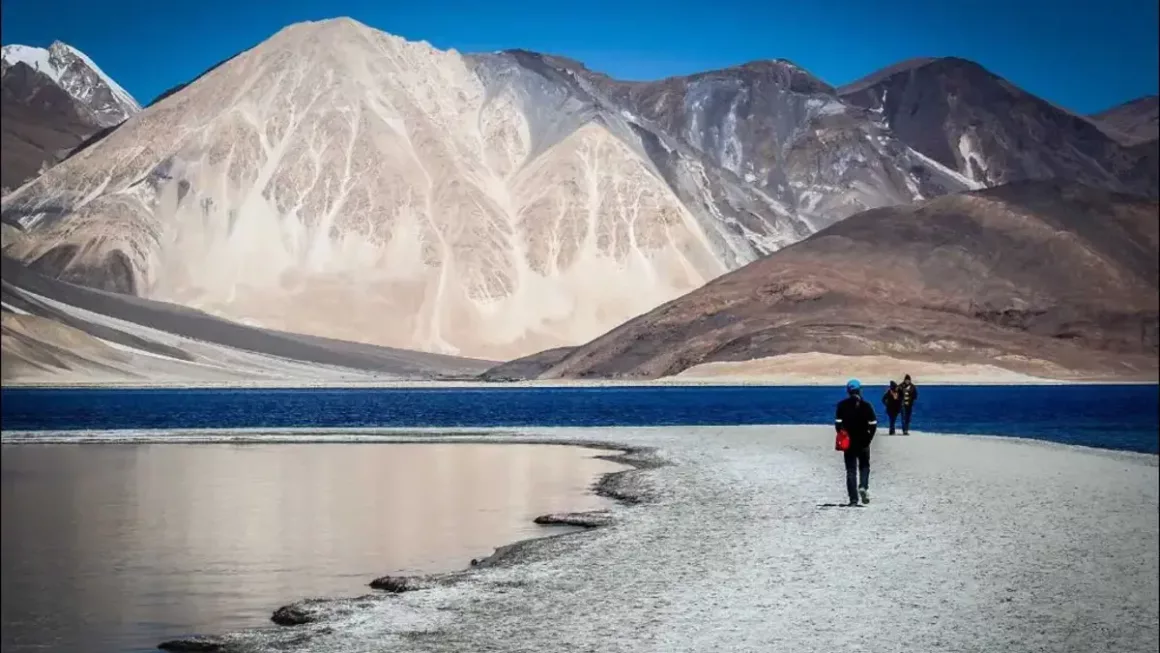
The Ladakh road trip promises an experience full of adventures and extremes. However, this experience can become less enjoyable if extreme weather conditions arise.
Located in the shadows of the Himalayas, Ladakh is a cold desert at a high altitude with 300 days of sunlight and barely 100 mm of yearly precipitation. Though Ladakh receives little to no precipitation, storms and intense downpours can result in mudslides and flash floods.
At 3,500 metres above sea level, summertime temperatures in Leh typically reach 25°C, while wintertime lows are as low as -15°C. This is why the best months for road trips to Ladakh are from June through September. Planning road trips at this time of the year is better because roadways are accessible and clear.
At higher elevations, nighttime lows can fall below zero even in the summer, making it much colder. When travelling in Ladakh, be sure to always wear warm clothing and take precautions against the harsh sun.
Planning your Leh-Ladakh Road Trip
The Leh Ladakh road trip necessitates you to consider numerous factors while planning. The three most important factors are the routes, itinerary, and permits.
Routes for Leh-Ladakh Road Trip
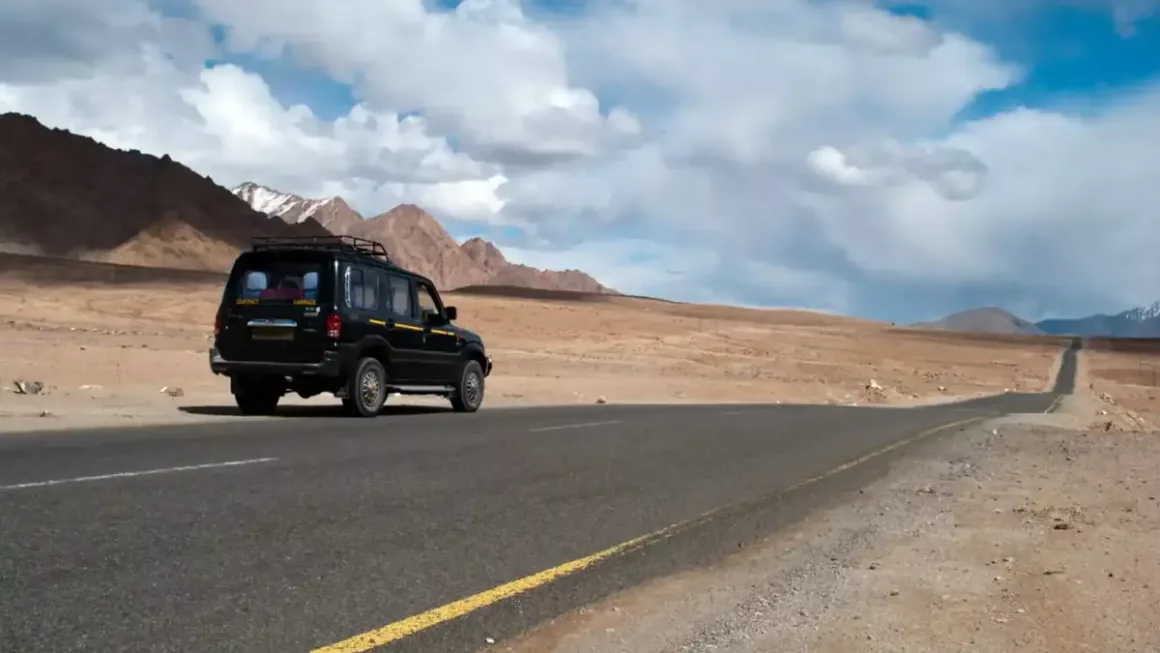
The route you choose is important as it will go on to define your memory and experience of this magical land. There are two main routes that you can take to reach Ladakh via your car. Considering that you are starting from Delhi, you can either reach Ladakh via Kashmir and Kargil or Chandigarh and Manali.
- Srinagar—Kargil—Leh (419 km): The path from Srinagar to Ladakh includes several locations and points of interest, including Zoji La Pass, Kargil, and the magnetic hills.
- Manali – Leh (428 km): Throughout the route, you can witness snow-capped peaks, verdant valleys, and desolate areas. A beautiful path runs via mountain passes, glacial lakes, and little settlements.
- Srinagar – Kargil – Leh (Ladakh) – Manali (840 km): This is another popular route you can take which offers you the best of three worlds: Jammu & Kashmir, Ladakh, and Himachal Pradesh.
Itinerary for Leh-Ladakh Road Trip
If you don’t have an itinerary prepared for yourself, you can use this 11-day Delhi to Ladakh road trip itinerary:
- Day 1 (Delhi to Manali): It takes nearly 12 hours to travel the 540 km from Delhi to Manali. It is possible to divide the journey into two days and spend the night in Chandigarh.
- Day 2 (The Manali): Once you reach Manali, you can stay here and explore Manali and its surroundings. You can visit the Solang Valley, Sissu Valley, Rohtang Pass, Hadimba Mandir, and more.
- Day 3 (Manali to Jispa): The 140-km journey from Manali to Jispa takes 5 to 6 hours. This route traverses the Lahaul Valley and the picturesque Rohtang Pass.
- Day 4 (Jispa to Sarchu): The 80 km journey from Jispa to Sarchu takes three to four hours to travel. As it crosses the Baralacha Pass, the path offers amazing views of the surrounding countryside.
- Day 5 (Sarchu to Leh): It takes around 9–10 hours to travel the 250 km from Sarchu to Leh. The path crosses via the passes of Nakee La, Lachung La, Tanglang La, and the Gata Loops.
- Day 6–8 (Leh and the Encirclement): Finally, when you reach Leh, you can stay and enjoy the monasteries, Pangong Lake, local foods, and hiking trails in Leh and the surrounding areas.
- Day 9 (Srinagar to Leh): The 434-kilometre journey from Leh to Srinagar takes roughly 12 to 14 hours. The journey passes via the Zojila Pass, offering stunning vistas of the Himalayas.
- Day 10 (The city of Srinagar): Discover Srinagar and its surroundings, including Dal Lake and the Mughal Gardens.
- Day 11 (Srinagar to Delhi): It takes around 22 hours to travel the 875 miles from Srinagar to Delhi. It is possible to divide the journey into two days and spend the night in Jammu.
Permits and Documentation you need for Leh-Ladakh Road Trip
There are numerous passes in Ladakh, but only a dozen are open for travellers. This is because Ladakh is a sensitive region with ecological and geographical sensitivities. It also has some protected areas that require certain permits.
The important documents and permits you must carry during your Ladakh road trip are as follows:
- Driver’s Licence: Your driver’s licence is the item you’ll need to bring on your road trip. Both the original and photocopies must be carried.
- Inner Line Permit (ILP): Everyone travelling to protected areas or near international borders are required to get the ILP from LAHDC website.
- Protected Area Permit/ Restricted Area Permit (PAP/ RAP): Foreign nationals visiting places under protection like Nubra Valley, Pangong Tso, Tso Moriri, and other ILP regions necessitate carrying PAP.
Preparing your Car

Prior to anything else, a road trip to the Ladakh region requires the right and maintained car. Ladakh is home to the world’s highest mountain passes and windy, bumpy roads with uneven terrain or slippery stones. The higher the ground clearance in these road trips, is better for a comfortable and enjoyable drive.
Preemptive Maintenance
Initial maintenance is the first item on the list of things to do to prepare your automobile for Ladakh. We advise getting the car serviced at least a week before the trip. The vehicle must be driven on your regular daily route for a few days following the maintenance to find and fix any problems.
If your automobile is operating well, there’s no need for further planned maintenance. Replace the engine oil, oil filter, air filter, and fuel filter. You must also inspect all the oil leaks and levels for power steering, gear oil, brake fluid, and other oils.
Make sure the terminals on your car battery are clean, and the connections are tight. You must check the tread depth and tyre pressure, and carry an extra tyre. Examine and replace brake discs and pads as needed. To manage the tough terrain, inspect the suspension system and get the wheels aligned.
Finally, you must ensure that all of the lights, including the tail lights, headlights, and indicators, are working correctly.
Safety Gear and Essential Accessories
Here is a list of safety gear, essentials, and accessories you must carry with you on your Ladakh road trip:
- First Aid Kit: It should include basic medical items such as bandages, antiseptics, painkillers, and personal prescriptions.
- Jumper Cables: These are helpful for reviving your vehicle in the event of a dead battery.
- Tow Rope: You must carry it in the event that you require a tow.
- Flashlight: a dependable flashlight with additional batteries.
- Repair Kit: It might not always be possible that you find someone to fix a tyre. This is why you must carry a complete repair kit.
- Car Fluids: Carry extra coolant, brake fluid, machine oil and windscreen washer fluid in case of emergencies.
- Additional Fuses and Bulbs: To prepare for unplanned breakdowns, carry additional fuses and bulbs for your car’s electrical system.
Key Attractions for Your Leh-Ladakh Road Trip
If you want to make the most of your Leh Ladakh road trip, here are the key attractions you can visit on your road trip:
- Pangong Tso: It is a sparkling high-elevation lake that is situated on the border between China and India at an elevation of 14,270 feet above sea level. It is well-known for its gorgeous blue tint and it is said that more than 50 shades of blue can be witnessed at different times of the day. This stunning landscape formed the backdrop of several bollywood movies, including Jab Tak Hai Jaan, Dil Se, and 3 Idiots.
- Nubra Valley: The Nubra Valley’s main attractions include the Khardungla Pass (one of the highest motorable roads in the world), magnificent peaks, and glaciers. This high-altitude, freezing desert also boasts of Nubra and Shyok rivers, breathtaking scenery, and sand dunes. Here, you can also sign up for a unique desert safari and absorb the scenic surroundings from a saddle placed between the Double Humps of Bavarian Camels.
- Dal Lake (Srinagar Ladakh Road): Often seen in Indian movies, the charming Dal Lake captures the spirit of Srinagar’s colourful culture, rich legacy, and stunning natural surroundings. This “jewel” of Srinagar is a must-visit during a Ladakh road trip.
- Rohtang Pass (Manali Ladakh Road): Rohtang Pass is located just 51 kms away from Manali and is a sanctuary for people who love the outdoors and seek adventure. During the Ladakh road trip via Manali, this pass offers a view of the picturesque road that passes over the Himalayan highlands. The landscape changes drastically after this pass as the lush green Himalayas transition into high barren mountains.
- Thiksey Gompa Monastery: One of Ladakh’s largest and oldest monasteries, Thiksey Gompa, was built on top of a hill in 1430 AD. Its architectural style is similar to that of Tibet’s Potala Palace, which is located in Lhasa.
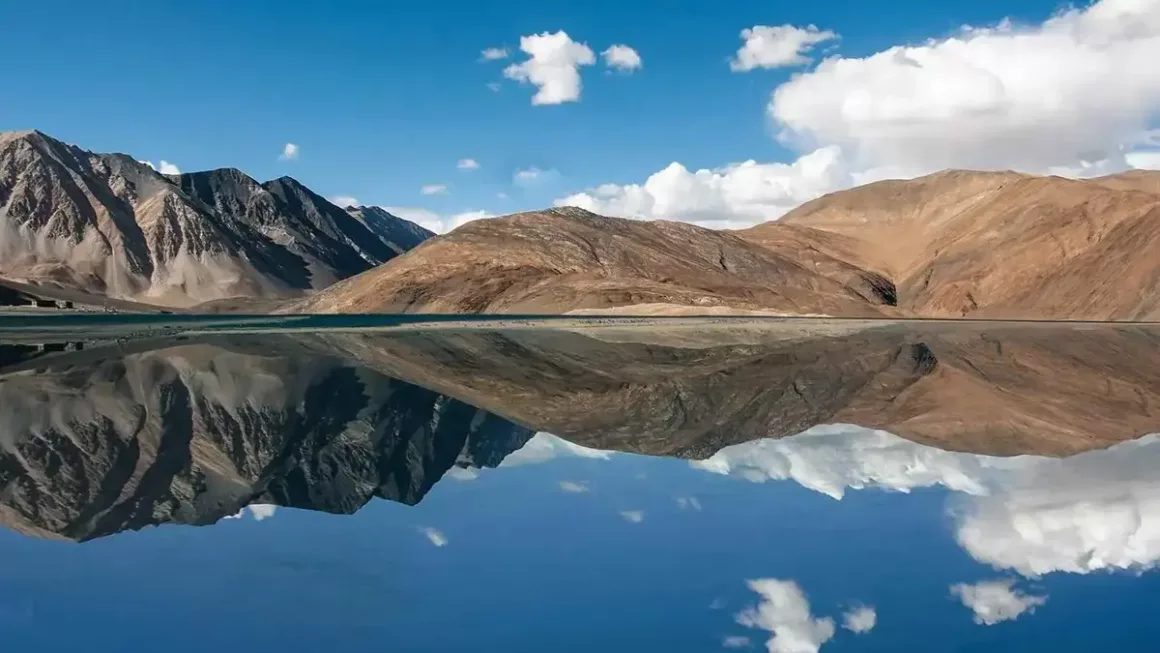
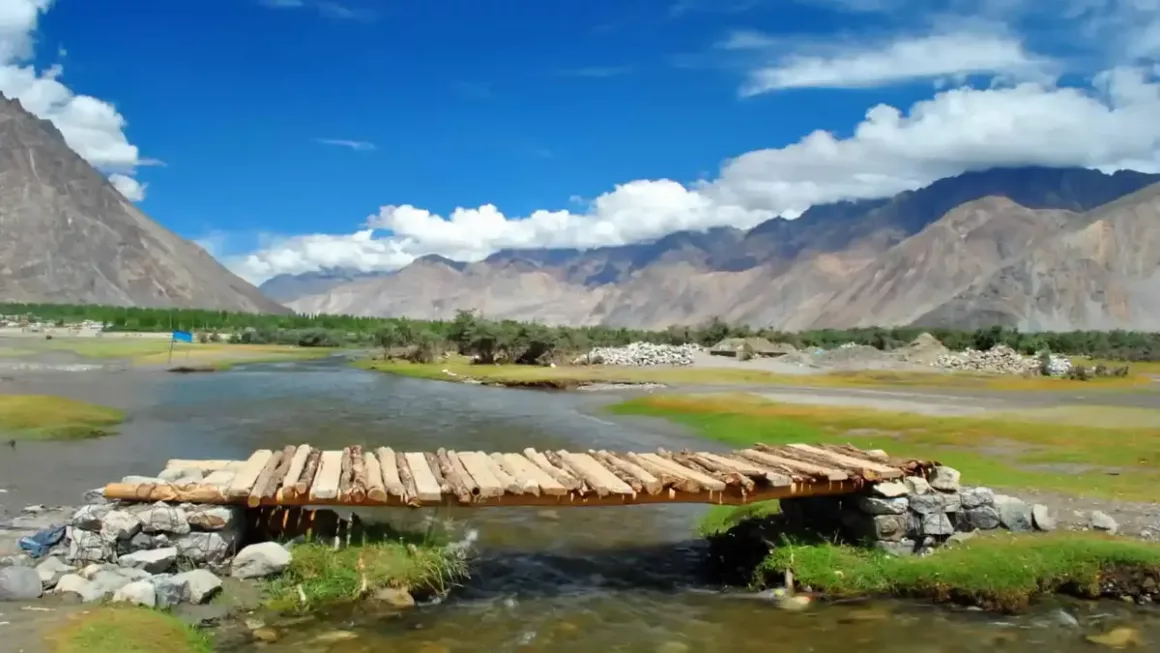
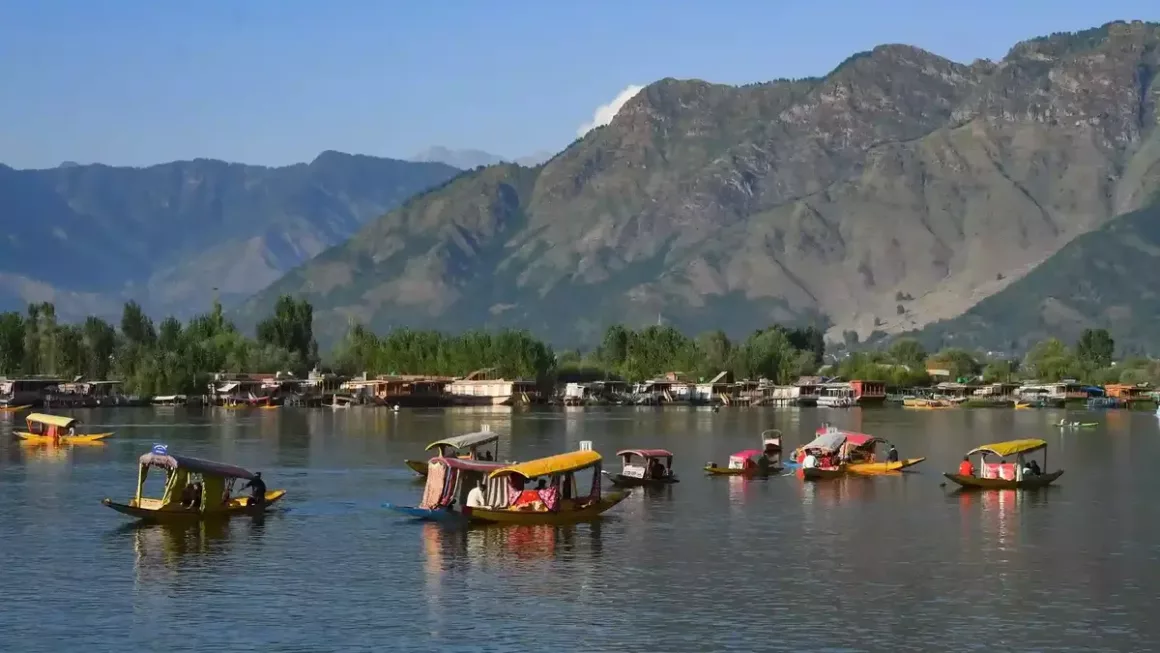
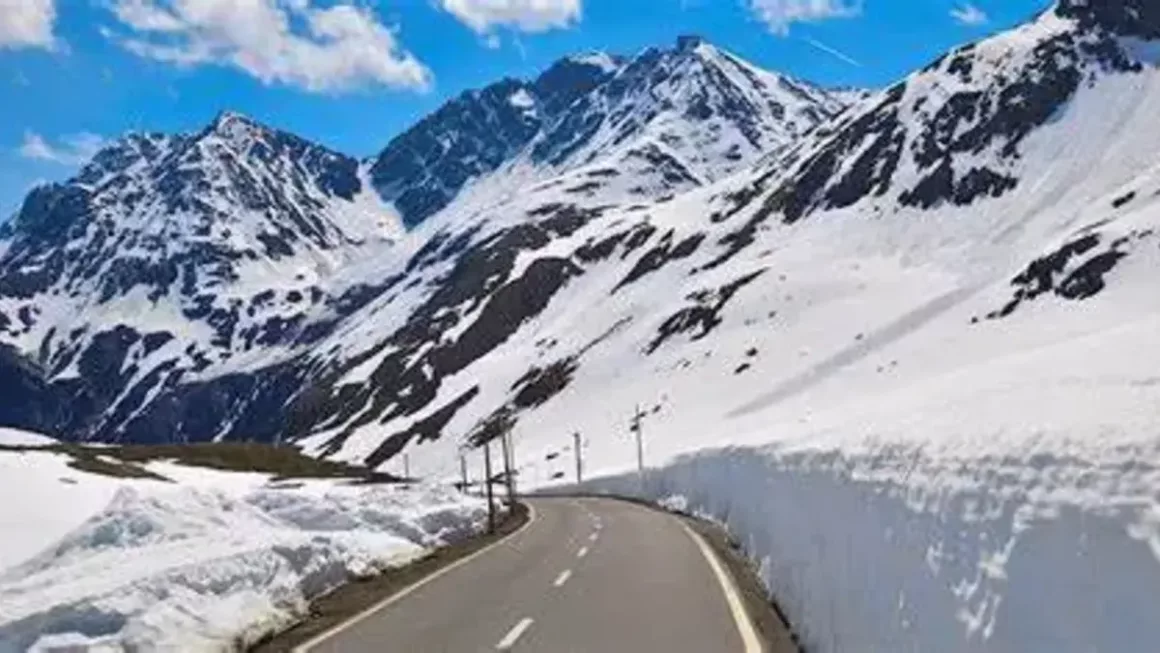
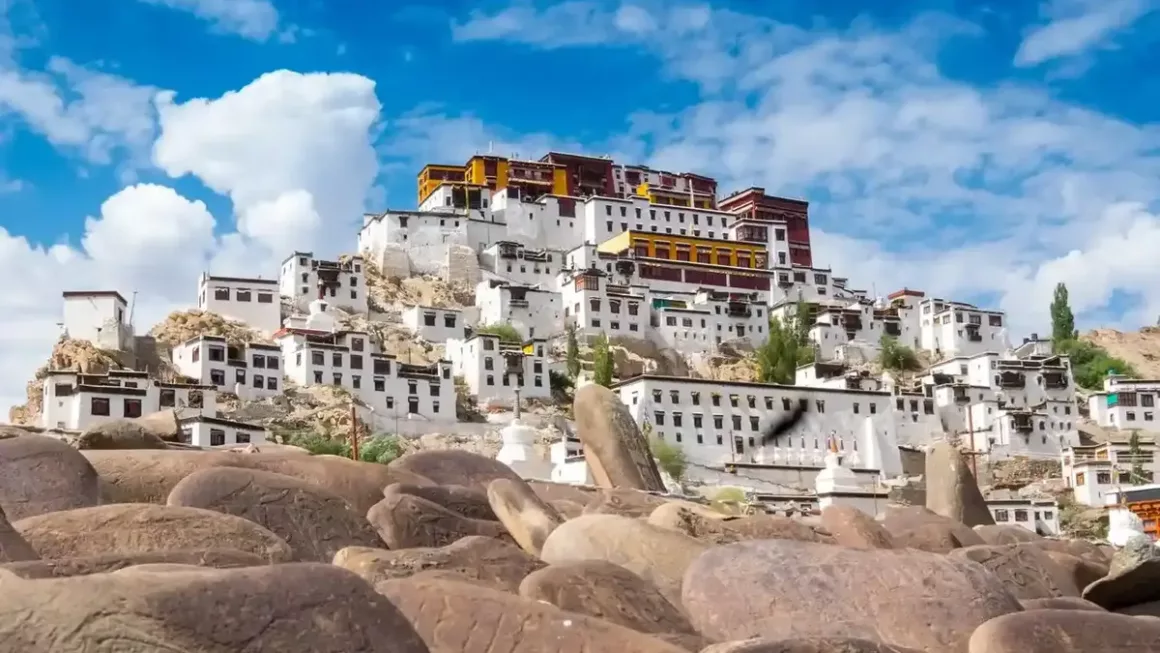
Summary
There are not enough things on your list that you can ask, and Ladakh won’t show or deliver. Be it the natural wonders, mountains, lakes, rivers, or its vibrant culture. Together, these promise an exhilarating experience and everlasting memories. Ladakh road trip promises this experience without sacrificing comfort. However, you must ensure that your car is well maintained before you take it on a road trip to ensure its safety as well as your own.
FAQ’s
Q. How many days for Ladakh road trip?
Ten to fourteen days are usually needed for a Ladakh road trip in order to thoroughly explore the region and get used to the high altitudes.
Q. Can we do a Ladakh trip with car?
It is definitely possible to go to Ladakh in a car, but you must make sure the vehicle is fit for rugged terrain and in good condition.
Q. Is a Ladakh road trip worth it?
Ladakh’s striking scenery, distinct culture, and thrilling roads make a Ladakh road trip well worth it.
Q. Do you need 4X4 for Ladakh?
Although not necessary, a 4X4 is strongly advised for a more comfortable and secure trip across Ladakh.
Q. Which is the best time for Ladakh car trip?
Since the roads are most accessible from June to September, this is the ideal time of year to drive in Ladakh.
